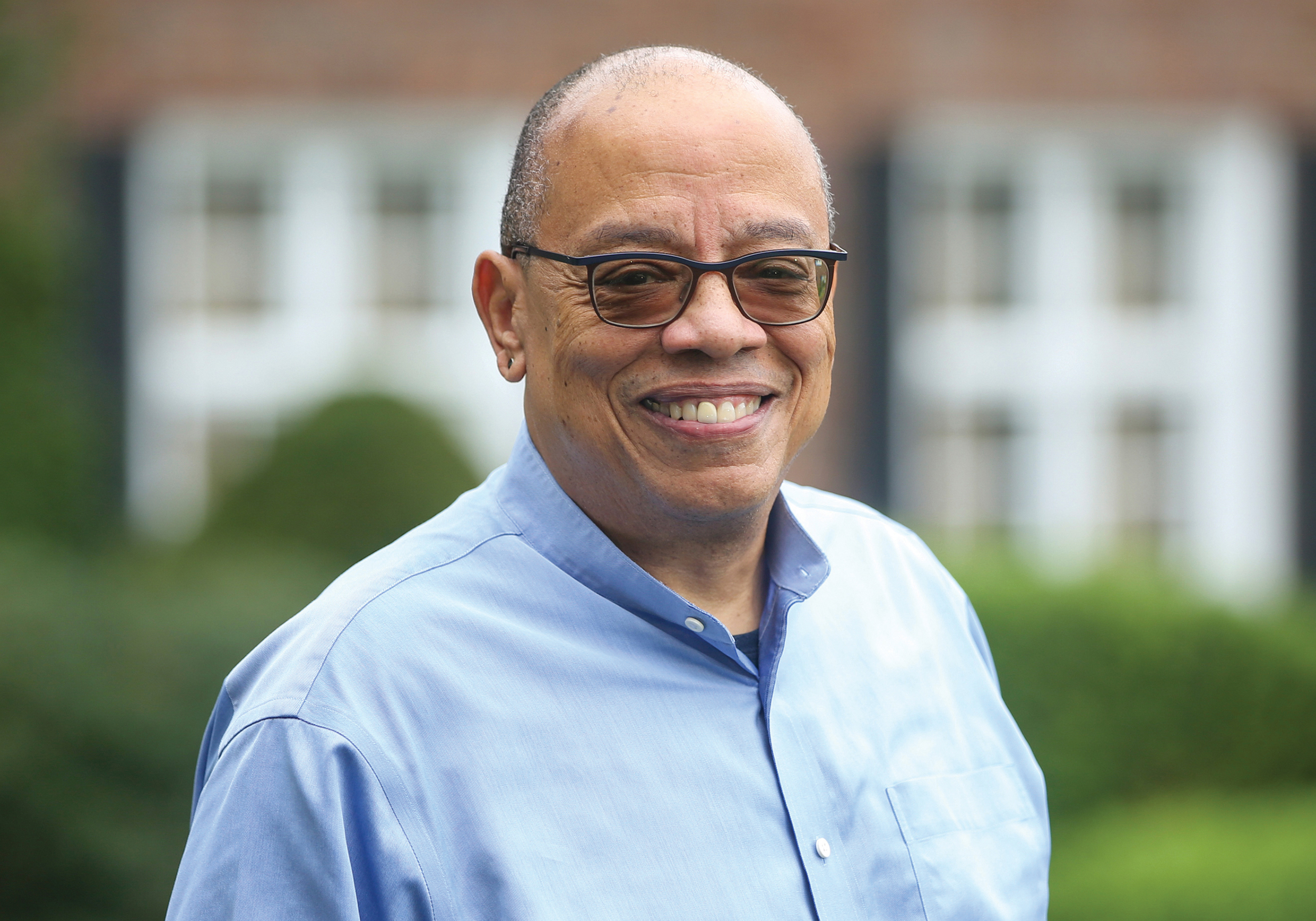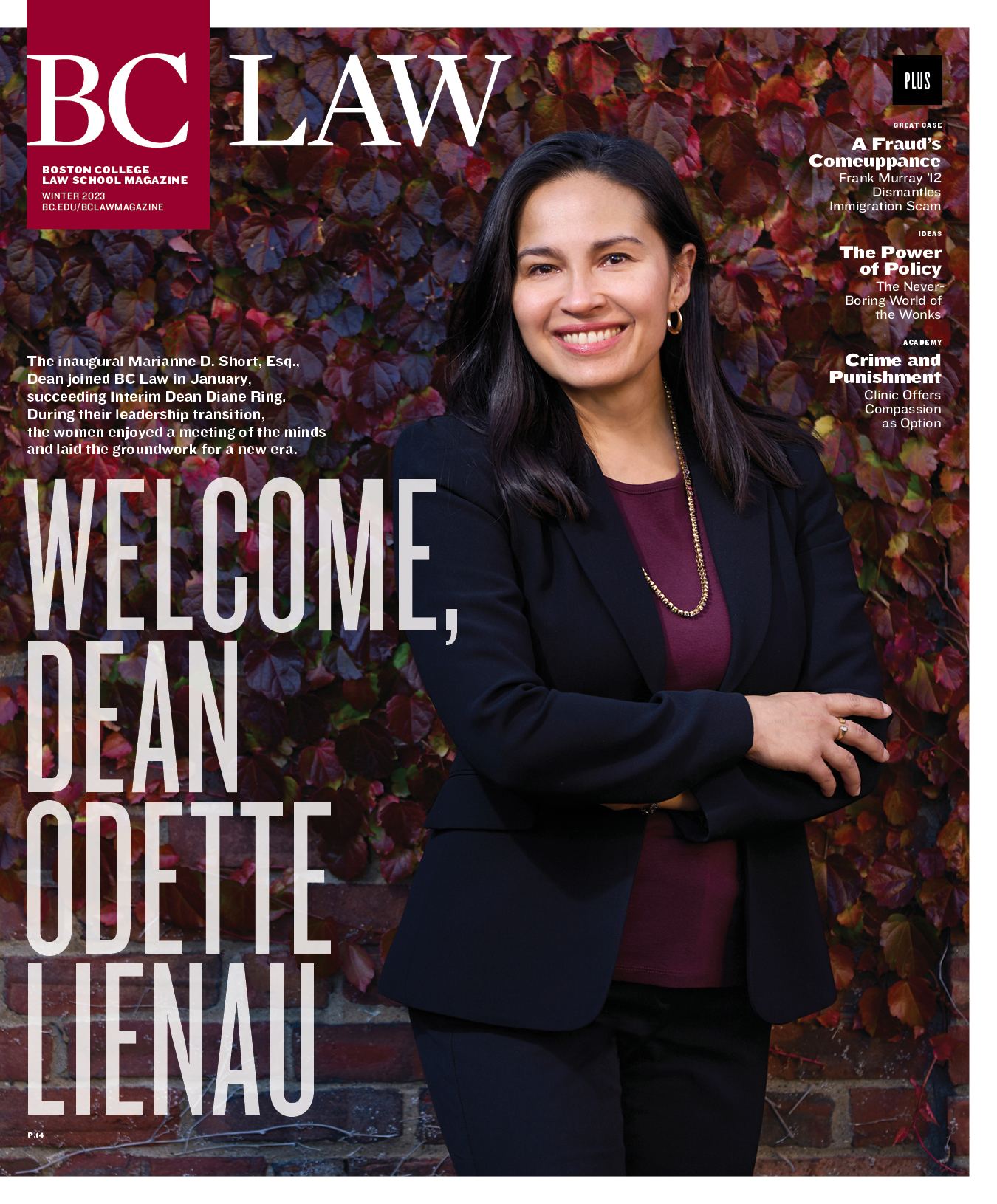BC Law’s Rappaport Center for Law and Public Policy increased its powerhouse reputation this past semester as a generator of estimable visitors, panelists, and events that elevate the conversation around society’s critical challenges. Jeffery Robinson was front and center during his four-month stay as the Jerome Lyle Rappaport Distinguished Visiting Professor.
He kicked things off with his documentary Who We Are: A Chronicle of Racism in America, a reckoning with anti-Black racism and white supremacy in America. The founder and CEO of The Who We Are Project, a non-profit working to expose the history of racism in the US, participated in a series of panels and talks and taught the seminar “Orwell’s Nightmare: United States Law and the Support of Anti-Black Racism.”
Robinson, who previously served as deputy legal director of the American Civil Liberties Union and director of its Trone Center for Justice and Equality, took on a variety of topics.
During a speech about Confederate monuments, in particular one in Georgia sacred to the Ku Klux Klan, Robinson noted: “We do not honor everyone who went to a war and killed somebody, we honor people who went to war for what they are fighting for. But what were the Confederates fighting for? It’s pretty clear and plain if you listen to what they had to say.”
He led a panel that examined how peremptory challenges during jury selection, if exercised for the wrong purpose, can enable racial discrimination, and in November shared the stage with other experts on the subject of reparations.
In other news, the Rappaport Center sponsored a four-member panel moderated by Marlborough City Solicitor Jason Grossfield on what it takes to be a municipal lawyer, and hosted a conference on gun control laws featuring a keynote address by US Senator Chris Murphy. The most needed innovation, he said, must come in how lawmakers build coalitions in Congress, in how they can find compromise to “find sixty votes.”



